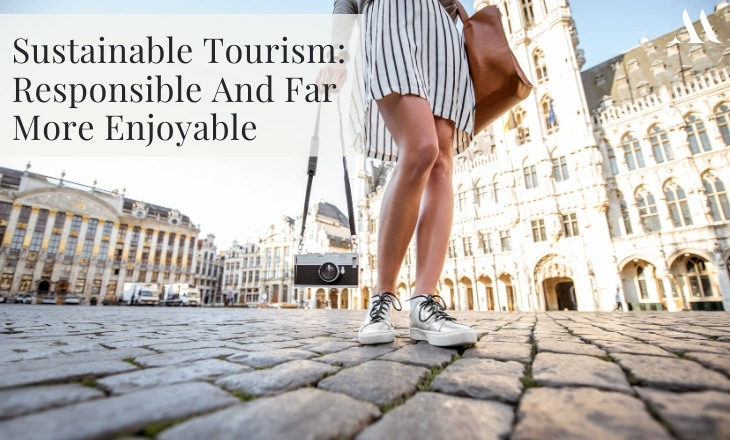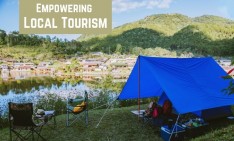Tourism is one of the greatest industries; no other industry can unite the world and promote peace quite like tourism does.
We live in a wonderful world filled with beauty, charm, and amazing people. There is no limit to the adventures we can experience if we seek them with open eyes—and tourism offers just that. It connects us with the precious aspects of our world, including stunning landscapes, wildlife, history, culture, and diverse people. However, beyond tourism itself, sustainable tourism is the need of the hour. Our beautiful world has been exploited beyond imagination, and now it’s time for us to take action—whether as service providers or consumers—to preserve both the industry and the planet.
Tourism plays a major role in driving local economic growth, providing quality jobs, creating business opportunities, and generating funds for conservation. However, if not managed responsibly, tourism can have negative effects on local communities and the environment, leading to long-term problems for locals and, ultimately, the decline of tourism in the destination.

Sustainable tourism aims to increase the benefits and reduce the negative effects caused by tourism. This can be achieved by:
- Safeguarding environment, wildlife, and natural resources while developing and managing tourism programs.
- Providing tourist experiences that conserve heritage and culture
- Creating socio-economic benefits for local communities by giving them employment opportunities.
Here is how you can contribute to Sustainable Tourism
- Honour Your Hosts
- Be An Informed Traveler
- Use Digital Platforms Wisely
- Make Tourism The Force For Good
Lead by example - And Set A Good Example For Other Travelers!
─────────────────────
Support The Local Artisans
There are many ways to support the local economy. One of the most effective is buying goods from small local businesses or street vendors, as it ensures that the money goes directly to them. Instead of opting for mass-produced plastic items, consider purchasing something handmade. In a world dominated by artificial materials, handmade goods should be treasured. Appreciating their intrinsic beauty means recognizing that they reflect the makers' enjoyment of life, as well as their deep sense of harmony and joy.
.jpg)
You will come to appreciate how rich their lives are in their simplicity. These humble artists are nourished by the natural beauty surrounding them. The flowers, leaves, and colors they observe in their environment find their way into their art, enhancing your beauty when you wear them or decorate your home.

Support Wildlife and Animal Welfare
Animal welfare is another important aspect of sustainable travel. Historically, humans have exploited animals to profit from tourism. Traveling sustainably means choosing not to support organizations or individuals whose services cause harm to animals.

It is scientifically proven that wildlife, including marine life, suffers from depression in captivity, as they are denied the freedom to live according to their natural instincts. Preserving wildlife is a crucial aspect of sustainable tourism.
Conservation of Culture and World Heritage Sites
Culture is the outcome in any society of its history, its faith, its thinking, its emotions, its aspirations and its ideals. It is revealed in the behaviour of people among themselves and in interaction with people of other cultures.
Traditions and cultures have given rise to some remarkable heritage sites and valuable architecture worldwide, which must be protected for future generations.

These cultures and heritage reflect the social virtues of serenity, wisdom, and morality. The inherent culture of innocence and spirituality fosters peace, honesty, and a strong moral sense. Overall, a healthy culture nurtures a harmonious language and promotes peaceful personal and societal existence.
Respect the Locals & Their Customs
Respecting others is a testament to a good upbringing, which certainly includes respecting the locals when traveling. This means honoring their religion, customs, traditions, and way of life. Learning the basics of your destination's culture and unwritten rules before you travel is an important step.

It’s also important to treat the people we meet with respect and show interest in their country’s customs. This creates more opportunities for friendly conversations, which could lead to great travel tips for off-the-beaten-path destinations or even an invitation to dinner at a local’s house. But most importantly, it can lead to lasting friendships.
Ask People Before Taking Their Photos
As a traveler exploring new cultures, it's natural to feel curious and want to capture photos of people and their daily activities. However, it’s important to show consideration before taking someone's photo. After all, most people wouldn’t appreciate having their photo taken without permission. This becomes especially relevant when visiting developing countries, where locals might be more tolerant than those from developed nations. Always exercise empathy and give people the freedom to choose whether or not they want to be photographed.

Reduce Non-Organic Waste
There are many ways you, as a traveler, can help reduce non-organic waste. There are simple, effortless ways to minimize contamination, and most of these can be applied both in your daily life and while traveling.
For example, you can switch to eco-friendly camping gear, travel gadgets, and toiletries. One easy step is to always dispose of your rubbish properly and, when possible, recycle. Additionally, aim to generate as little waste as possible. Staying away from plastic products is one of the most impactful changes you can make.
Choose more Environment-Friendly Stay and Transport
The lifestyle changes and growing demand for higher comfort among consumers have led to increased energy consumption, particularly through the use of electrical devices, with air conditioning being a key contributor. The hospitality industry, heavily reliant on consumer demand for comfort, has seen a direct impact in the form of high energy usage.
However, many aspects of the hospitality industry are not aligned with the principles of sustainability. Its reliance on luxurious design and high-tech gadgets, as well as its ability to ensure perfect comfort in all weather conditions, results in a heavy dependence on energy.
Currently, 80% of the world’s energy supply comes from fossil fuels (coal, oil, and natural gas), which emit greenhouse gases and contribute to climate change and other environmental issues.
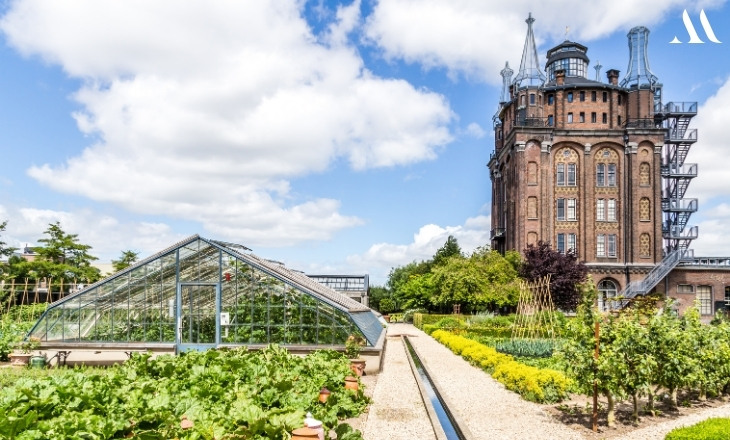
As the end-user, you can play a key role not only through your responsibility to use the building efficiently but also through your demand for the integration of sustainable building design aspects as an additional quality element, thus influencing and orienting the future building sector.

Traveling by public transport is another effective way to reduce your environmental impact. Buses and trains can accommodate many more passengers than taxis, meaning the carbon footprint per person is significantly smaller.
When flying, you can help offset carbon emissions by contributing a small amount to carbon offset programs. This money supports projects that reduce emissions elsewhere, balancing out the carbon your flight releases. Some airlines actively work toward reducing their environmental impact through various sustainability initiatives.
Help To Conserve Our Precious Natural Resources
Tourism has been a key driver of economic growth, particularly in coastal regions. However, uncontrolled and unsustainable urbanization of these areas, often due to weak regulatory frameworks, has led to significant environmental and sustainability challenges linked to tourism.
Coastal areas and small islands are particularly affected by this form of tourism, as local infrastructure is typically designed to support a much smaller population than the influx of tourists during peak seasons. The result is overcrowded roads and beaches, the degradation of natural ecosystems, and excessive pressure on local resources, including public utilities.

You can help conserve our precious natural resources by being mindful of when and where you visit such places. Additionally, support companies and programs that prioritize sustainability, and avoid those that harm the land, animals, or birds in the process of creating their products.
4o mini
Support Local Tour guides
By supporting local tour guides or businesses, you gain authentic insights into the culture and environment from people who have lived there. They offer real knowledge, often passed down through generations, rather than an orchestrated or scripted narrative. Local guides have deep-rooted stories to share about their land—stories of personal experience and connection.
Those involved in tourism at the local level take pride in their country and its heritage. They are the ones who truly appreciate its beauty and significance, and they play a key role in promoting the essence of the nation. Through their engagement with visitors, they raise awareness about conservation efforts and contribute to preserving the environment for future generations.
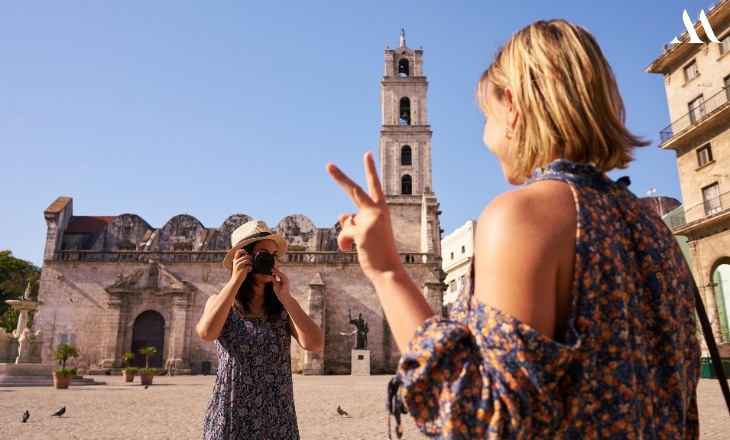
It is crucial now more than ever to create a space for tourism where entrepreneurial spirit, creativity, innovation, and education come together. This integrated approach can promote equality, self-sustainability, and resilience, ensuring the industry is prepared to face future challenges. By fostering these values, we can build a tourism sector that not only supports economic growth but also empowers local communities, preserves cultures, and protects the environment for generations to come.
Sustainable Tourism Is Not Only About Creating Better Places To Visit But Also To Live
The sustainable tourism industry plays a vital role in preserving the natural landscape and culture of a place while also generating employment and empowering local communities. A straightforward way to support locals is by considering stays at homestays and Airbnb accommodations, which often offer more affordable options than traditional hotels. Additionally, taking an interest in cultural and heritage tourism ensures that local traditions and sites are respected and preserved. When done thoughtfully, cultural tourism can benefit the local population and visitors, fostering a mutually beneficial relationship supporting sustainability, community development, and cultural exchange.
.jpg)
Support Sustainable Tourism
There is nothing to lose by being part of sustainable tourism, but there is a sense of confidence that the natural places where you stay will continue to thrive far into the future. By supporting responsible travel practices, you preserve these beautiful and unique destinations, ensuring that future generations can experience their wonders just as you have.
Together, we can preserve the world where we live and the cultures around us.
It’s all about becoming a more responsible traveller!
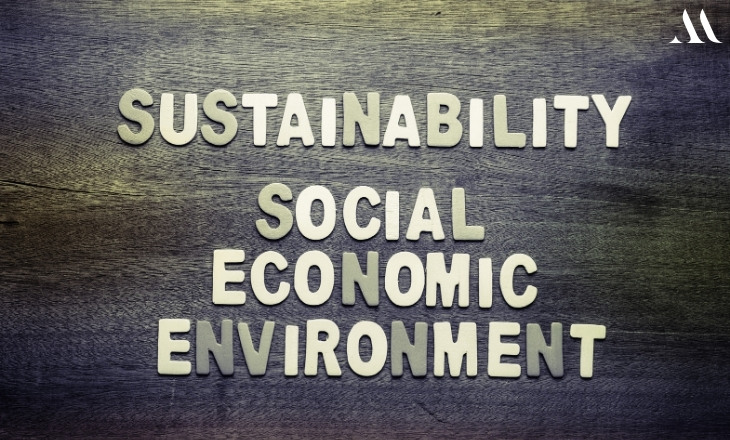
.png)


